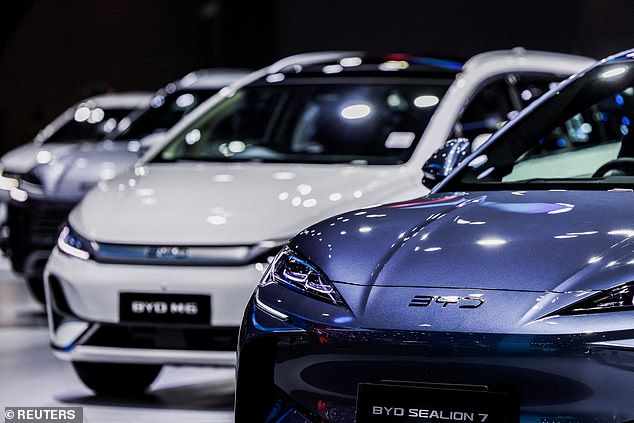UK defence firms have warned their staff not to charge their mobile phones in Chinese-made electric cars due to security concerns. Companies such as BAE Systems and Rolls-Royce are taking a cautious approach to prevent potential espionage by the Chinese state. Measures include avoiding parking in production plant car parks and refraining from connecting mobile phones via Bluetooth or charging cables to Chinese electric vehicles. The UK has seen a rise in Chinese electric car brands such as BYD, Ora, Geely, and XPENG, although Chinese manufacturers also own brands like MG, Volvo, and Polestar. Joseph Jarnecki, a research fellow at the Royal United Service Institute, stated that defence firms are taking precautions due to historical evidence of Chinese espionage efforts. James Bore, managing director of Bores Group, noted that while theoretical attacks on devices through chargers have been demonstrated in lab conditions, there’s no evidence of such incidents occurring naturally. The Chinese Embassy in London and several Chinese car manufacturers were approached for comment.
Security Concerns and Precautions
The defence sector is taking a ‘cautious’ and ‘belt and braces’ approach to the potential security risks associated with Chinese electric vehicles. By avoiding certain practices, they aim to minimize the likelihood of sensitive national security data being compromised. The rise in Chinese electric car sales in the UK has prompted these precautions.
Response from Chinese Car Manufacturers
XPENG, a Chinese electric car manufacturer, denied allegations that their cars spy on drivers. The company stated that their vehicles comply with all relevant laws and regulations. Other manufacturers, including BYD, MG, Ora, Geely, Volvo, and Polestar, were also contacted for comment.





